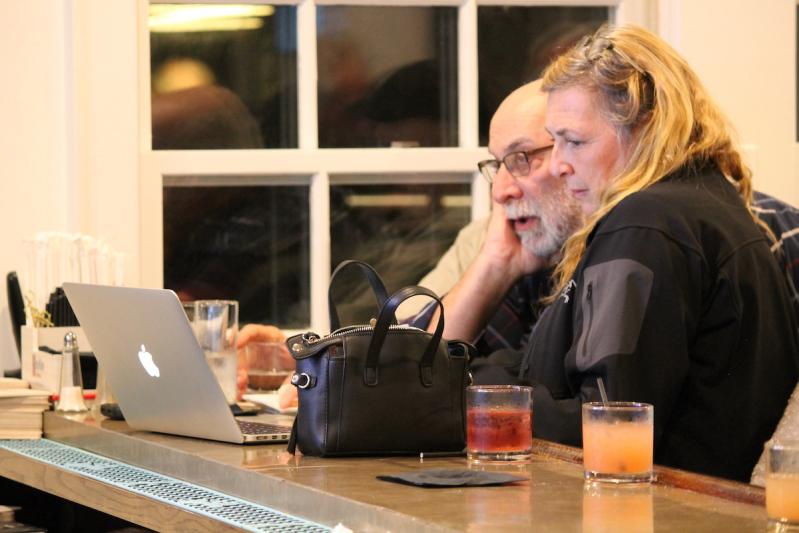The New York State Commission on Judicial Conduct has admonished East Hampton Town Justice Lisa R. Rana for “inappropriate political activity” during the 2019 election campaign. The matter was first reported in The East Hampton Star.
Ms. Rana, a Republican who was narrowly re-elected that year, was found to have edited several letters sent to The Star by David Gruber, who ran an unsuccessful campaign for supervisor on the East Hampton Fusion Party ticket.
New York’s rules for sitting judges and candidates for the bench prohibit any partisan political activity other than in their own campaigns, even anonymously. Judges, justices, and candidates may not participate in any campaign for any office other than by running against an opponent for the same position.
The determination references “Help From a Judicious Editor,” an article in The Star’s Oct. 17, 2019, issue that exposed Ms. Rana’s participation in the composition of Mr. Gruber’s letters. “Politics makes strange bedfellows,” it began, “and in East Hampton, this year there may be no stranger political couple than East Hampton Town Justice Lisa R. Rana, a lifelong Republican, and David Gruber, a Democrat who is running for town supervisor but not on the Democratic line.”
The connection between Ms. Rana and Mr. Gruber, a former chairman of the East Hampton Democratic Committee and its candidate for supervisor in 2001, came to light in August 2019, when a letter to the editor that Mr. Gruber had sent to The Star by email was discovered to be an unfinished Microsoft Word document on which the “Track Changes” function showed that Ms. Rana had made multiple changes to it.
Shown a copy of the letter shortly after it was delivered to The Star, Ms. Rana adamantly defended her involvement and denied that it demonstrated prohibited coordination with another political campaign or did not comport with ethical guidelines. “A private conversation or communication with a colleague or candidate where I had every reason to believe such communication would remain private between myself and the other party does not constitute direct or indirect political activity within the meaning of the ethics rules and does not violate those rules,” she told The Star.
Mr. Gruber also defended Ms. Rana following discovery of their collaboration. He “routinely shared letters” with Ms. Rana, he told The Star, “to review and offer her editorial commentary.” He insisted that the justice's participation in no way violated the guidelines stipulated in the state’s Judicial Campaign Ethics Handbook. “Nobody is my ghostwriter,” he said. “I asked Lisa to edit a letter in its third or fourth draft. She’s a strong writer, a good writer. . . . My purpose is to be understood.”
The state commission, however, noted that Ms. Rana had sent an email to Mr. Gruber on Aug. 6, 2019, “to express her concern that he had submitted an article to a local newspaper with her ‘Track Changes’ edits still visible.” She added that “it would be ‘very bad . . . indeed’ if her involvement in editing his articles were to be made public.”
Mr. Gruber incorrectly assured her that he had not made this mistake, the commission wrote, and Ms. Rana continued to edit his letters.
Ms. Rana “has been cooperative and contrite throughout the Commission’s inquiry,” they wrote, asserting that she did not edit any essays or letters to the editor for any other political candidate, nor would she in the future. She was not charged with misbehavior on the bench “or with such actionable ‘deceitful’ conduct as a lawyer making misrepresentations to a court,” the commission wrote in a March 19 determination, “or ‘ghostwriting’ submissions for a litigant appearing to be acting pro se” (in one’s own behalf).
The commission also noted that it had “confidentially cautioned” Ms. Rana in 2005 for preparing and approving a radio advertisement for her candidacy that misrepresented facts about her opponent’s reasons for seeking judicial office. She has been a justice of the town court since 2004, and a justice of the Sag Harbor Village Court since 2011.
The New York State Advisory Committee on Judicial Ethics, which was created to help judges comply with the rules of conduct, has repeatedly advised judicial candidates to avoid even the appearance of impropriety and to always act in a manner that promotes public confidence in the judiciary’s integrity and impartiality.
In a 2016 opinion the advisory committee wrote, “A judge may not engage anonymously in otherwise prohibited political activity, such as publishing partisan political literature.” The opinion went on to note, “And if, as is quite likely in modern politics, the public learned that a judge was attempting to conceal his/her impermissible political activity, that would only exacerbate the resulting appearance of impropriety.”

